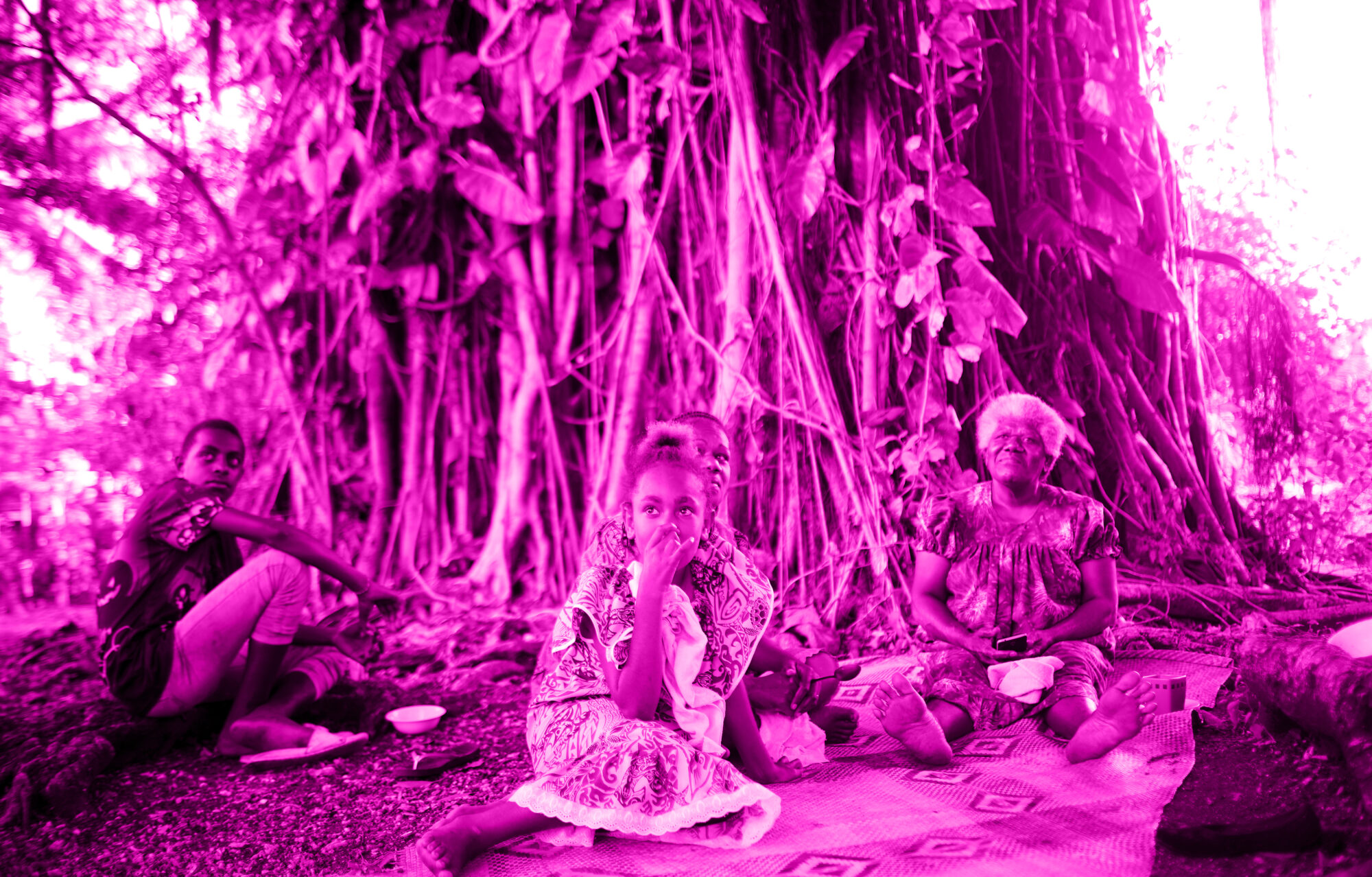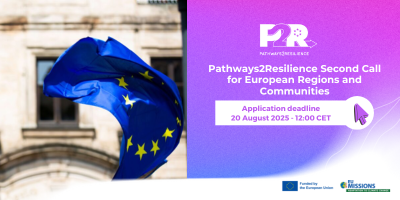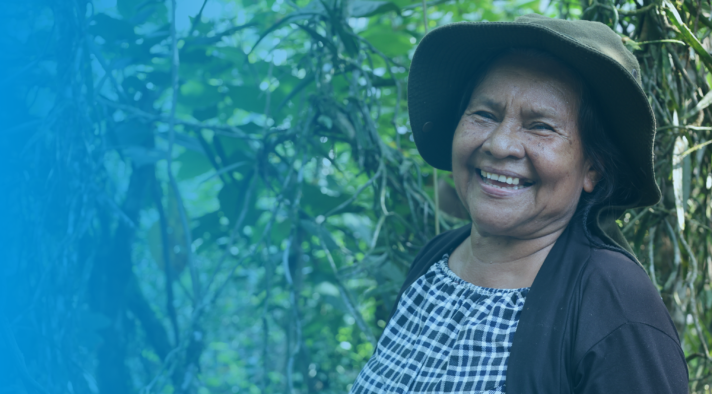Regions Race to Resilience at COP27
Regional governments, who are members of the RegionsAdapt initiative, have joined the campaign Race to Resilience launched at the Climate Adaptation Summit on January 25, 2021 to showcase their work and commitments towards resilience.
The Race to Resilience is a UN-backed global campaign led by High-Level Climate Champions for Climate Action, to catalyse a step change in global ambition for climate resilience, putting people and nature first in pursuit of a resilient world where we don’t just survive climate shocks and stresses, but thrive in spite of them.
Led by the High-Level Climate Champions for Climate Action, Race to Resilience aims:
- By 2030, to catalyse action by non-state actors that builds the resilience of 4 billion people from vulnerable groups and communities to climate risks
Regional governments within the Race to Resilience
More than 70 regional governments, members of RegionsAdapt, have joined the Race to Resilience, since its launch.
They commit to:
- ASSESS climate change impacts through vulnerability assessments that include all vulnerable communities
- PLAN, prioritize and adopt an ambitious adaptation plan and/or programme (mainstreaming adaptation into other sectoral policies) and including the most vulnerable, with interim targets and long-term goals.
- ACT to implement concrete actions on adaptation in key identified priority areas.
- REPORT annually on their progress through the CDP States and Regions reporting platform to inform and improve policies and actions, and track their commitments to the Race to Resilience.
Progress of Regional governments towards reaching their Race to Resilience commitments
As part of RegionsAdapt commitment to the Race to Resilience, RegionsAdapt reports to the Race to Resilience, every year, the progress of its members through the data and information gathered in our CDP/RegionsAdapt survey.
So far, the 32 regional governments that have reported in the survey for 2021 – 2022, and are captured in RegionsAdapt progress for 2021 – 2022 (that will be launched at COP27), have engaged in the following key areas of progress:
- Evaluating the direct and indirect socio-economic risks: 93% of disclosing regions in 2021 have reported an increasing number of socio-economic risks – 112 – due to climate change, which reflects the widespread impacts and awareness of current climate change to the society and economy.
- Increasing the number of climate adaptation plans in place: In 2021 and 2022, 72 % of disclosing regions reported having a climate adaptation plan, progress compared to previous years (68% in 2020). The main reason regions have increased their efforts is due to the harsh consequences and impacts of climate change, especially extreme weather events which have increased in recent years.
- Progress on regulation and legislation worldwide, with many regions having, or being in the process of developing specific climate change laws (Catalonia, Québec, Sao Paulo, Baja California Sur…). There has also been major progress in terms of access to data availability and public training/raising awareness on climate change (Minas Gerais, Sao Paulo, Québec, Jalisco, Lombardy …) which shows that information is a key driver to mobilise society into acting to adapt to climate change.
- Mainstreaming adaptation into other sectoral policies: there has been undeniable progress in mainstreaming adaptation in other sectors along with better coordination between departments, with many regions developing new coordination mechanisms focused on climate change.
These trends are encouraging; however, progression has been uneven across regions. Some regions from the Global South not only suffer most from the impacts of climate change but also report a lack of funds or technical capacities to address these impacts.
More information will be available on our COP27 website, with the launch at COP27 of the RegionsAdapt 2021 – 2022 progress report.
Pathways to Resilience
The contributions from the regional government come to inform the Global Stocktake (GST) that will be conducted every 5 years from 2023, by the UNFCCC, to assess the global progress on mitigation and adaptation.
It also comes as a contribution to the Climate Action Pathways, which are a vital part of the Marrakech Partnership tools to enhance climate action and ambition towards fully implementing the Paris Agreement.
First launched in 2019, they set out sectoral visions for achieving a 1.5° C resilient world in 2050, with overarching transformational milestones, and key impacts that need to be achieved to realize them.
The Pathways incorporate insights about the exponential nature of the necessary systemic and technological change within sectors but also focus on the synergies and interlinkages across the thematic and cross-cutting areas in order to assist all actors to take an integrated approach. Regions4 contributed to providing inputs from Regional Governments on these pathways.
Overall, the Pathways aim to provide a roadmap to help Parties and non-Party stakeholders alike to identify actions needed by 2021, 2025, 2030 and 2040 as steps to get to the 2050 vision. As such, they are intended as living documents, to be updated periodically with the latest information and lessons learned as the state of climate action evolves.
Regions4 has worked with the Marrakesh Partnership to define these pathways.
Consult the pathways here: Climate Action Pathways | UNFCCC
2030 Breakthroughs
The Climate Champions have looked at building ‘breakthroughs’, covering 30 sectors, to articulate what key actors must do, and by when, to deliver the systems change we need to achieve a resilient, zero carbon world in time. This creates a shared vision for all the different players in a system, helping to spur action.
The first set of government-led Breakthroughs coincides with COP26 and is called the Glasgow Breakthroughs: a series of actions across five key economic sectors that together represent more than 50% of global emissions.
The breakthroughs look at implementation, showing concrete scalable and implementable actions that can help in accelerating action.
They aim:
- To converge non-state actors behind simple heading goals describing tangible, real-economy changes
- Provide project-level clarity on what is needed to achieve these goals (e.g., what new infrastructure, investments, offtake agreements, policy shifts, and socioeconomic changes are needed).
- Bridge between the Parties and non-party stakeholders to set the enabling conditions that will finance and deliver such projects through concerted and collective action.
Implementation labs for the main breakthroughs will be organized at COP27 for Global Adaptation and Resilience under the following themes: Food and Agriculture, Water and Nature, Human Settlements, Oceans, Infrastructure, Cross Cutting – planning and finance.
Marrakesh Partnership events at COP27
The Marrakesh Partnership and climate champions will be organizing several events at COP27:
High-Level Champions and Marrakech Partnership programme for COP 27 | UNFCCC
Join us to act towards resilience and join the Race to Resilience
You can be part of this global initiative and join us.
When regional governments join the Race to Resilience through the RegionsAdapt initiative, they:
- Demonstrate leadership in becoming part of the global solution to tackle climate change and build resilience;
- Gain formal recognition of their efforts by the UNFCCC;
- Join a dynamic network, where they can learn from peers and exchange knowledge, experiences and good practices with leading regional governments from across the world;
- Access useful tools and events through our RegionsAdapt Community of Practice webinars, or stay up-to-date with the latest information, opportunities and resources through our dedicated newsletter;
- Participate in shaping a common voice by joining RegionsAdapt advocacy actions and collective messaging;
- Increased visibility and recognition by accessing global campaigns such as #RegionsVoice or #WhatsAtState, by sharing your expertise through publications or events, and by featuring your relevant case studies in the RegionsAdapt Annual Report, all shared with the Race to Resilience.
If you are a regional government wishing to join the Race to Resilience and our work within the Marrakesh Partnership, please fill in our online adhesion form to RegionsAdapt and the Regions Race to Resilience: Join RegionsAdapt and the Regions Race to Resilience | Regions4
For more information
Regions Race to Resilience Campaign – Regions 4



